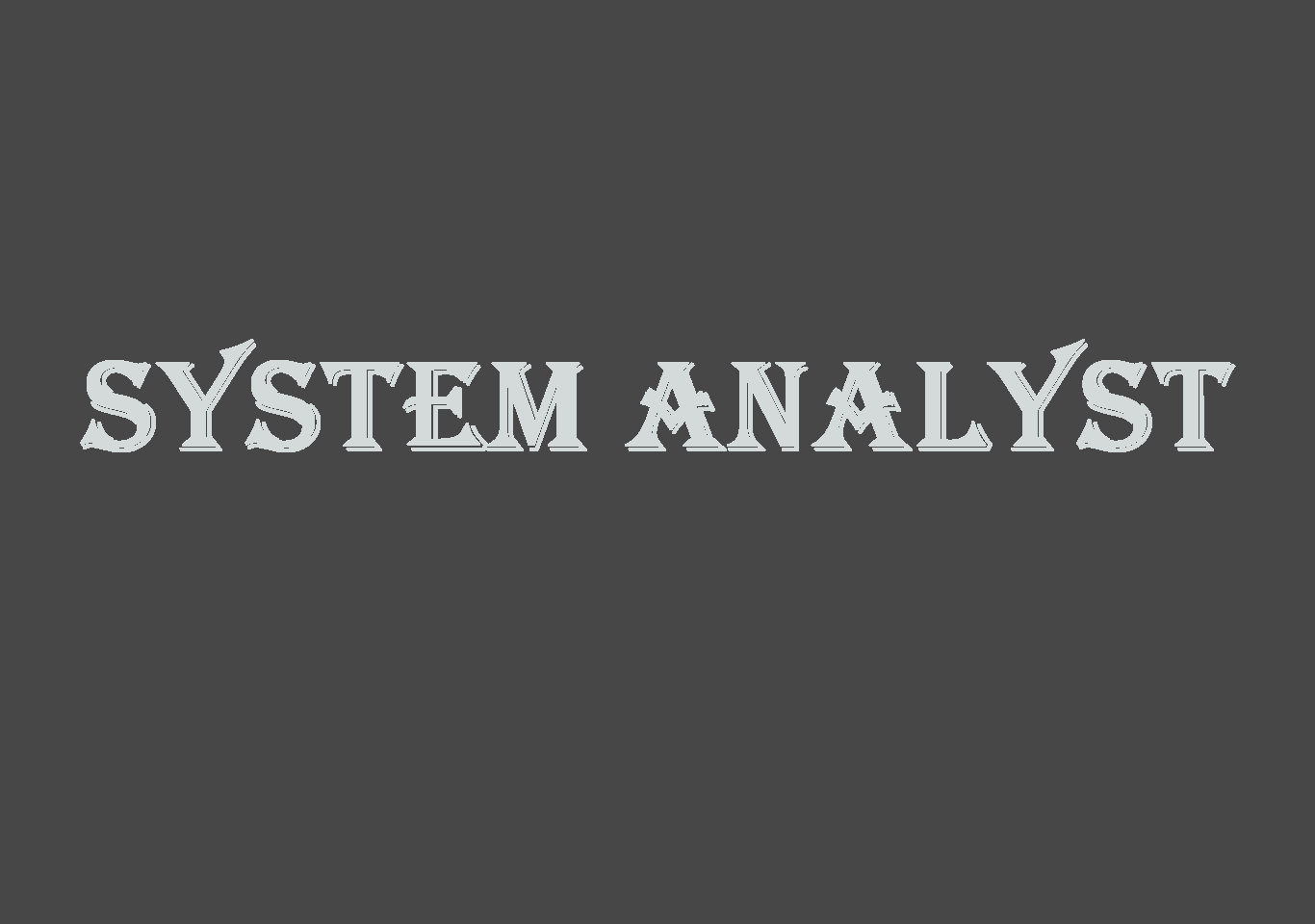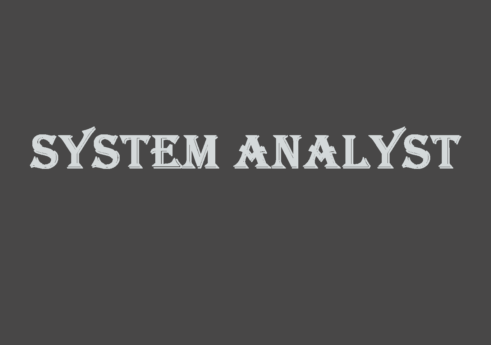Introduction
A system analyst is a person who involves in system analysis. System analyst is the problem solver who studies the problem and provides the solutions.
The system analyst studies the problems and needs of an organization to determine how people, data, processes, and information technology can best accomplish improvement for an organization. An analyst is also involved in analyzing, designing, implementing, and evaluating computer-based information systems to support the decision-making and operations of an organization.
They study the current system, procedures, and business processes of a company and create action plans based on the requirements set. In an organization, some people are technical while some are non-technical. This difference can bring a communication gap between those who need computer-based solutions and those who understand information technology. The duty of system analysts is to bridge the gap.
Roles and responsibilities of system analyst
Defining requirement
The most important task of an analyst is to understand the user’s requirements. It involves interviewing users and finding out what information they use in the current system and how they use it.
Prioritizing requirements by consensus
In any organization, there are many types of users. Each user has some special needs. It may not be possible to satisfy the needs of everyone due to limited computing capacity. There is a need to set priorities among the requirement s of various users. This responsibility of the system analysts requires good interpersonal relations and diplomacy.
Gathering data, facts, and opinions of users
Collecting the required information and their priority, the system analyst must develop the system with active and willing cooperation of all the users. The analysts designing the system must make use of the users experience and expertise.
Analysis and evaluation
The system analyst analyses the working of current information system in the organization and finds out to what extend they meet users need. The analyst then analyses the facts and opinions gathered, and finds the best modified system which will meet the users stated information needs.
Solving problems
An analyst must study the problems in depth and suggest alternate solutions to the management. The relative difficulties in implementing each of the alternatives and benefits of each must be determined so that a manger can pick the best answer.
Drawing up specifications
An analyst has to design the functional specification of the system to be designed in the form which can be understood by the users. The analyst must get the acceptance from all levels of users of the system.
Designing systems
Once the specification is accepted, the analyst designs the system. The design must be understandable to the system implementer.
Evaluating system
An analyst must critically evaluate a system after it is in use for a reasonable period of time. The time at which evaluation is done, how it is to be done and how users comments are to be gathered and used must be decided by the analyst.
Characteristics of system analyst
Knowledge of an organization
A system analyst must understand the way in which various organizations function. The analyst must understand the management structure and the relationship between the departments in organizations. He/she must also find the day-to-day how the operations are performed in the organization for which the information is being developed.
Knowledge of computer systems and software
The analyst must know about the recent developments on computer system and software. He/she must be able to advice on the hardware configuration needed to develop the required applications.
Ability to communicate
An analyst is also required to orally present his design to group of users. The analyst must be able to organize his thoughts and present them in a language that is understood by the users.
Analytical mind
Analyst is required to find solution to problem using various analytical tools. The characteristic of a good system analyst is to convert a problem into an opportunity.
Flexibility and adaptability
Different projects can be of different natures. A system analyst should be flexible to adapt in new challenges.
Character and ethics
The system analyst must have good morals and strong character. Analyst often access to sensitive and confidential information of the organization that is not meant for public disclosure.


